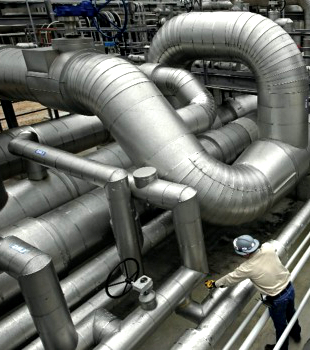Big mark from LNG methane
 Experts say the global liquefied natural gas (LNG) boom could contribute to climate change as much as coal.
Experts say the global liquefied natural gas (LNG) boom could contribute to climate change as much as coal.
A new report by the Global Energy Monitor contradicts claims by Australia’s emissions reduction minister, Angus Taylor, who says LNG exports are environmentally beneficial because they displace coal power.
LNG is the main reason Australia’s greenhouse gas emissions continue to rise.
US-based researchers at the Global Energy Monitor say the $38 billion worth of LNG investments in Australia put it fourth on a list behind the US, Canada and Russia.
The analysts say the planned tripling of global LNG capacity could lead to decades of emissions of methane.
The Intergovernmental Panel on Climate Change says methane emissions need to be reduced by up to 35 per cent between 2010 and 2050 to meet the Paris goals.
Natural gas is often pitched as a transition fuel on the path to clean energy, because it has about half the carbon dioxide emissions of black coal when burned to generate electricity.
However, the head of the International Energy Agency has rejected that argument, and joined with science bodies warning that a move to clean energy and industries needs to happen faster.
Global Energy Monitor researchers found fugitive methane emissions from LNG production would have as large or larger global heating impact than proposed coal power expansion.
“The truth about LNG is nobody knows what is happening across the supply chain,” said Global Energy Monitor executive director Ted Nace.
“But it’s very easy to see leakage of 2 per cent to 3 per cent and if that much gets away into the atmosphere it is significant – it gives a jolt of warming.”
The Australian Petroleum Production and Exploration Association says the Global Energy Monitor study is flawed because it compares total emissions from coal and gas but does not include a full lifecycle analysis, which might find gas has a significantly lesser impact.







 Print
Print